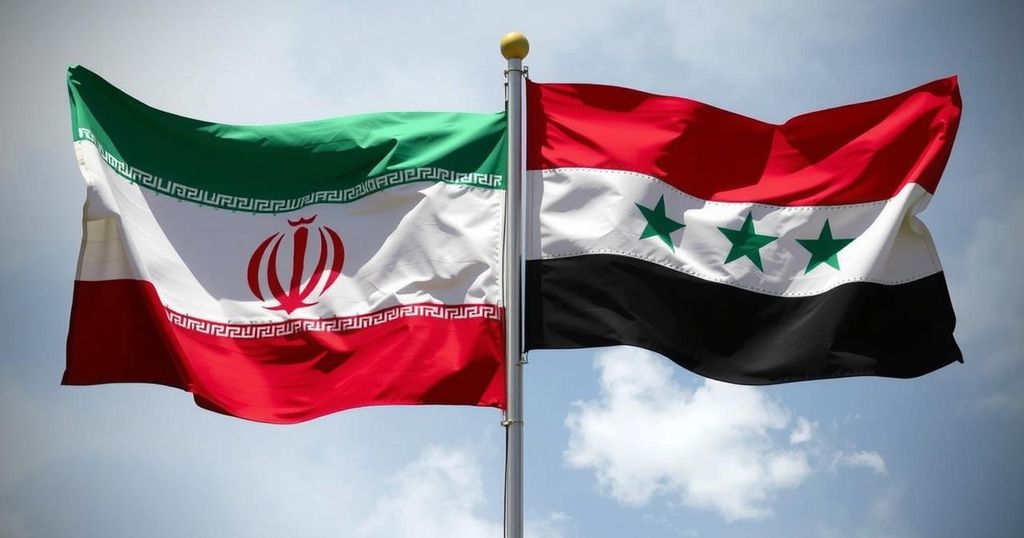Iraq and Iran Initiate Ties with New Syrian Administration Post-Assad
Following the overthrow of Bashar Al-Assad, Iran and Iraq are moving to engage with Syria’s new administration. Iraqi officials express commitment to avoiding boycotts and emphasize the importance of cooperation on mutual interests. Tehran’s support for the Syrian people’s rights highlights a shift in foreign policy amid regional upheaval. The scenario suggests a reconfiguration of alliances in the Middle East as both Iraq and Iran navigate the aftermath of Assad’s regime change.
Following the recent overthrow of Bashar Al-Assad, both Iran and Iraq, steadfast allies of the former Syrian regime, are taking steps to establish communication with the new administration in Damascus. A prominent Iraqi official emphasized that Baghdad will not boycott any regime selected by the Syrian populace. They are eager to engage and coordinate with those currently in power while stressing the importance of reopening channels for cooperation regarding pressing mutual interests such as border issues, Iraqi refugees in Syria, and the preservation of Shia religious sites in Damascus.
Recently, Baghdad has dispatched messages through a Turkish intermediary, advocating for an acknowledgment of the new political landscape in Syria that respects the rights of all groups involved. The head of the Sovereignty Alliance in Iraq urged Syrians to learn from past mistakes made in Iraq and to build a nation based on justice and citizenship.
In Tehran, although initial reactions were muted, the Iranian government later recognized the Syrian people’s right to shape their own future, emphasizing non-interference from foreign entities. An Iranian official mentioned that communication lines have been established with leaders of the newly formed Syrian administration to ensure relations remain cooperative and avoid conflict.
Critics within Iran’s political circles suggested that the regime’s retreat from supporting Assad was due to the latter’s shift towards Arab states that sought to reduce ties with Iran. This change in Assad’s allegiance may have contributed to his downfall, signaling a shift in dynamics that could redefine the relationships and power structures throughout the Middle East.
The topic at hand encompasses the geopolitical shifts following the fall of Bashar Al-Assad, a long-standing leader who ruled Syria for over five decades. The recent success of opposition forces in Syria has created a ripple effect throughout the region, forcing neighboring countries like Iraq and Iran to reassess their alliances and positions. With the establishment of a new Syrian administration, both countries are keen to redefine their diplomatic channels, focusing on mutual interests that may enhance stability and prevent potential conflicts arising from the power vacuum left by Assad’s regime.
In conclusion, the developments following Bashar Al-Assad’s overthrow have prompted Iran and Iraq to actively seek constructive dialogue with Syria’s new leadership. Their initiatives reflect an understanding of the new political landscape and underscore the necessity for cooperation on shared concerns. These diplomatic overtures may pave the way for a more stable Middle East, despite the challenges posed by the transition and regional dynamics.
Original Source: www.newarab.com




Post Comment